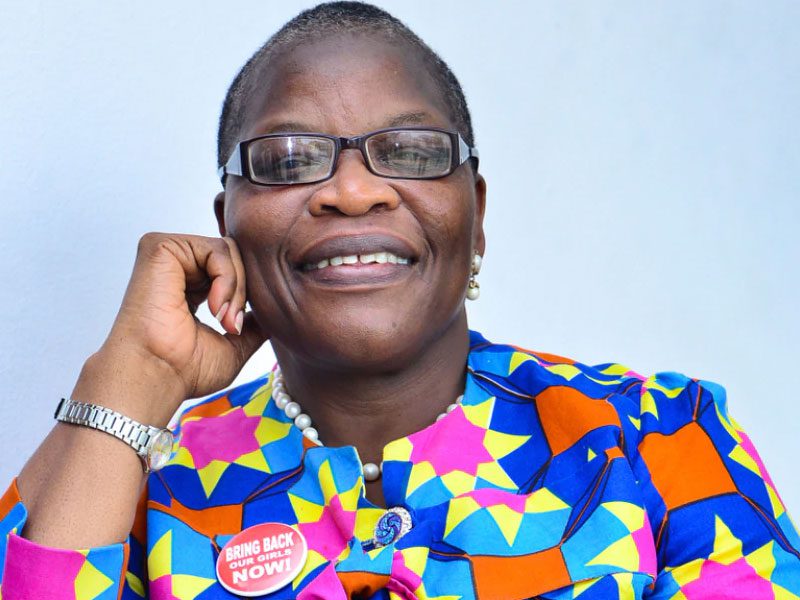Democracy & Governance
Much Ado About Binge Borrowing -By Roy Biakpara

Thanks to Aunty Oby Ezekwilisi for coining the term, “Binge-Borrowing”.
They post pictures about how fresh they look and how safe the roads are but their followers who can say the same about security & progress in any way, are few & far between if they exist at all.
Propaganda is used to try to make people think a certain way. So people will take sides, because stories about bad things the one side had done will be told to make people angry and frightened so everyone would want see the other side more favourably. Posters would be very carefully designed with words and images to have a desired effect on the public. Videos can also be ‘clipped’, sometimes with voiceover effect to direct a certain narrative and sway people. The gullible are typically the greater demographic and where violence is an easy trigger, the result can be devastating.
Before anyone puts out pictures of Petrol Stations that don’t have any queue in them leading up to Christmas, put them up yourself. Being fed crumbs while being milked dry by those in power is a perennial event like the celebrations themselves. I was shocked to find one of the handles pushing certain narratives with this profile, “An advocate of peace, democratic principles and rule of law. Promoter of peaceful co-existence in Africa, Good governance, and regional integrationist.” That is not FAKE NEWS & is not a JOKE.

I often tell those that I teach to use corroboration to any news material that is bandied about and especially since the increasing use of information warfare. Corroboration is the need for evidence to not only be from a trusted source, but to be supported by one or more independent source(s). Lack of corroboration is a serious problem in prosecuting crimes of certain degrees in certain countries. Many in the country take news from the ruling party, opposition, or the news media without checking with other reliable sources.
The Real Gist Today
See the headlines:
Nigeria will move ahead with plans to borrow $5.5 billion from foreign investors after the Senate on Tuesday approved President Muhammadu Buhari request for the move. – Reuters (NOVEMBER 14, 2017).
“We intend to fund the 2019 budget through borrowing locally and internationally with a spread of 50:50. Our focus is on concessionary long-term loans,” said a National Assembly tweet quoting the finance minister. Reuters (MARCH 27, 2019)
By its own admission and as records show, the Debt Management Office says Nigeria’ debt servicing cost is rising. Nigeria currently spends 69% of its feeble revenue on debt servicing. What the government of the day is doing can be likened to binge addiction to borrowing. Just like binge-watching television, where you do nothing all day or week, streaming many television episodes in one sitting. They are not doing anything about revenue generation, at least not as aggressively as any government serious about development at pace with its age. If you’re addicted to binge-drinking, or alcoholism, you’re a heavy drinker and all your thoughts are on the bottle. There are also binge-gamblers that can spend
Bingers in any form typically use the behaviour as a coping mechanism because they have maladaptive coping mechanisms, overestimate the chances of the benefits and a total lack of control. When they lose their finances, they blame it on the object of their addiction rather than their incompetence or inadequacies. This bingeing also affects their decision-making because they believe it is the solution to all their troubles. But one thing about gambling that is universal is that, “The House Always Wins”. It is a business out to make a profit and you would be hard-pressed to find anyone in that business who would be making pay-outs so incredible without making stupendous returns. If you are bingeing, you are definitely LOSING to the house; not making any increase.
That’s what’s happening with the debt-servicing.
But is Nigeria credit-worthy? How come it is able to find loans after loans?
According to the Macmillan Dictionary, creditworthiness is:
“The degree to which a person, organization, or country is considered likely to pay back money that they borrow.”
Creditworthiness attempts to measure a country’s ability to honour its external debt obligations, that is the ability to pay back a debt. It is measured by its OECD country credit risk rating. In other words, how likely they are to repay a loan by meeting their financial obligations.
The more creditworthy a country is, the more likely a bank will lend money. And also more likely to get a low interest rate on the loan.
Credit history on the other hand refers to how past loan obligations have been met.
Many other factors also influence how creditworthy a country is. For example, a country’s economic growth rate, its current account balance relative to GDP, and various ratios—savings to investment, external debt to GDP, debt-service payments to GDP, and interest payments to GDP. In addition to these, a country’s vulnerability to external shocks is gauged by the degree to which it relies on a single export. Debt ratios are used to assess the sustainability of a country’s debt service obligations, but no absolute rules determine what values are too high.
World Bank’s view of Nigeria
This is what impression the WB has about Nigeria. You can speculate the terms with which whatever loans will be given would operate and if you’re honest after the prior analysis, it cannot be favourable at all.
Country risk in Nigeria is high with an OECD country credit grade of 6. This is akin to a speculative grade sovereign rating, which indicates an elevated risk of Nigeria being unable and/or unwilling to meet its external debt obligations.
The World Bank’s ease of doing business gauge—which measures regulation and red tape relevant to a domestic small to mid-sized firm—ranks Nigeria 146 out of 190 economies!
The World Bank ranks Nigeria in the bottom quartile for all but one dimension of governance. Nigeria also falls behind the sub-Saharan average on almost all areas of governance. Nigeria being seen as prone to political instability & violence, scoring often in the worst 5 countries for terrorism in the last 5 years.
The risk of expropriation in Nigeria is high, despite having laws that protect against expropriation. They are either really seizing properties unlawfully or doing so without knowing the laws within which they must operate. Either way it is incompetent and unbelievable.
The World Bank also believes the judicial system is not always independent and is susceptible to pressure from the government. This would make it difficult for investors to seek recourse from the courts.
Political risk is also high as many extremist groups, including Fulani Herdsmen, Boko Harem & factions of Islamic State continue to undermine security in Nigeria. The government is ill-equipped to combat extremists, as the lack of infrastructure in rural parts of the country makes the guerrilla warfare conducted by terrorists extremely effective.
Nigeria’s per capita income has risen on average 7.5% p.a. over the last 15 years driven predominantly by elevated commodity prices over much of that time. But if you listen to propaganda, it is up or down BECAUSE of one party or the other. Well the present administration hasn’t been in power for 15 years!
Oh and about finding loans after loans, “The House Always Wins”. In this case, the house is the World Bank. No matter how wasteful you are, not matter how addicted and no matter how much you fritter away, they will keep letting you gamble away.















